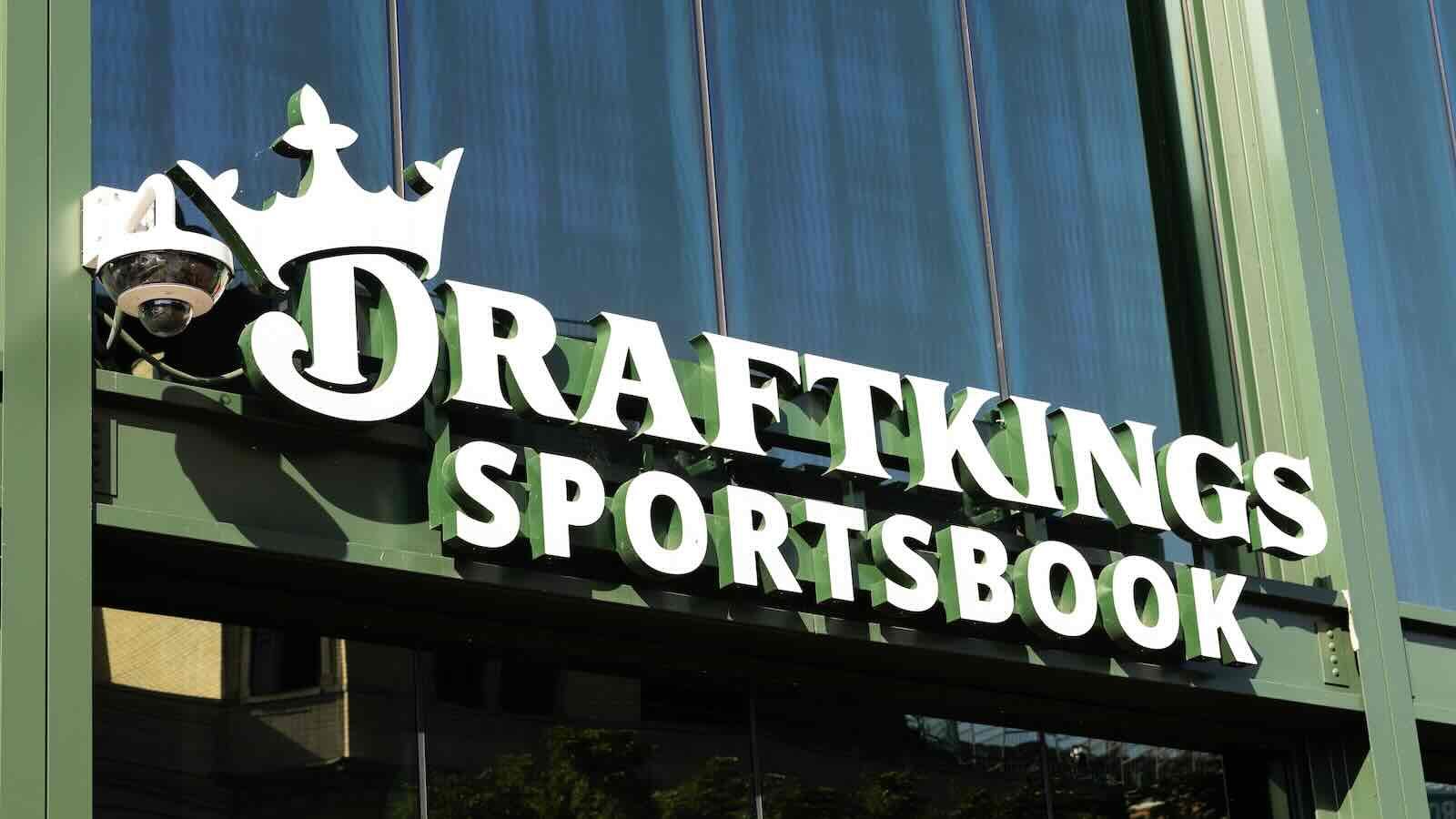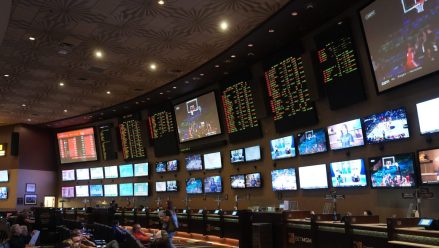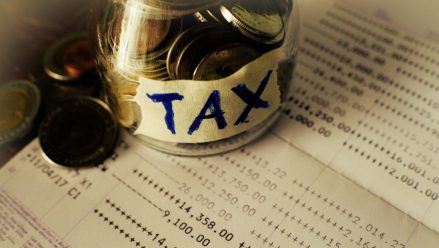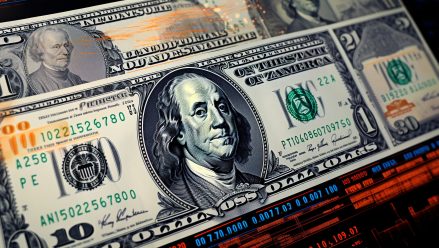DraftKings boss Jason Robins hinted the operator may scrap its $0.50 surcharge in Illinois and instead make its odds less sharp if the state goes ahead with its plan to levy additional taxes on the “pass-through” fee that was intended to address a recent tax hike.
In a Thursday earnings call, Robins said DraftKings was working to “resolve” issues with the state about whether the surcharge is itself taxable, and that there would be “no benefit” to going with the surcharge if the company is forced to pay additional taxes — which could hit $25 million annually — on the surcharge itself.
Strong results, but big tax impact ahead
The business reported strong results late Wednesday, thanks to a series of sportsbook-friendly sporting outcomes during the quarter. Revenue for the three months to June 30 came to $1.51 billion, while adjusted earnings before interest, tax, depreciation, and amortization (EBITDA) was $301 million, both easily setting new records for the usually quiet second quarter.
However, the operator opted not to increase its guidance for either revenue or adjusted EBITDA for the year, partly because its full-year guidance also includes the effect of tax rises, including the per-wager tax in Illinois as well as hikes in New Jersey and Louisiana.
On an earnings call following the results announcement, Chief Financial Officer Alan Ellingson said that tax increases since 2023, which also include Illinois’ introduction of a progressive revenue tax, are set to cost the business $200 million a year by 2026. He suggested that those tax increases will make it difficult for the business to achieve the target of $1.4 billion in adjusted EBITDA in 2026, which DraftKings set three years ago.
The Illinois per-wager fee, Robins said, is the hardest one to predict the effects of, because it’s the first of its kind in the U.S. Operators are required to pay $0.25 to the state for each of their first 20 million wagers in a year, and $0.50 for all wagers after that. DraftKings – which is on course to accept around 125 million wagers in Illinois during the 2024-25 fiscal year – is passing that fee on to customers with a $0.50 surcharge on all bets. FanDuel did the same, while Fanatics opted for a $0.25 per-wager surcharge. Operators including BetMGM and Hard Rock set minimum bet sizes.
“The way Illinois implemented the tax, there was just no good solution here,” Robins said. “We saw some other operators go with minimum bet sizes. There’s pros and cons to different approaches but we felt the pass-through was the best approach. We wanted to offer our customers the freedom to make lower-denomination bets if they wanted to.
“There really isn’t a good solution, I’m hoping that they fix it. It’s hard to say what it’s going to do. I don’t think it’s going to have zero impact, that’s for sure. But it’s really hard to know because we haven’t seen a tax like this, a per-wager tax, so it’s kind of uncharted territory.”
DraftKings working to resolve questions
The state’s interpretation of the tax and of how to treat the surcharge has also been controversial among operators. The fee appears set to be taxed, according to Robins, though the IGB has not issued any official guidance on this. Given the progressive tax system in Illinois, DraftKings pays a marginal tax rate of 40% on adjusted gross revenue, as it brings in more than $200 million in a year.
If the surcharge is counted as revenue and DraftKings does not experience a decline in betting activity because of the change or find other ways to reduce its impact, it could end up paying an extra $25 million in tax on the surcharge alone.
Robins was asked about the different strategies DraftKings could take to mitigate big tax rises such as the one in Illinois. He said he wasn’t happy with the interpretation of the surcharge as taxable revenue, and hinted that the business may address the tax hike with pricing changes instead if the Illinois Gaming Board doesn’t change its mind.
“Tweaking pricing is something we need to consider, and some of it depends on the first question which was tax treatment,” he said. “Our view was that it’s a pass-through and shouldn’t be taxed. I think Illinois has taken a bit of a different view on it, but we’ll try to resolve that before we implement the charge on Sept. 1.
“I think if it ends up being treated as taxable revenue, then there’s really no benefit to doing that versus incorporating it into pricing, so we’ll have to see on that. In terms of other states, this will be an interesting experiment into seeing what implementing a charge like this looks like, and what the effects are.”
InGame estimates DraftKings would pay approximately $64 million in per-wager taxes under the new model, which would be the equivalent of a 16% tax rate. That would be in addition to the effective 35.2% tax rate DraftKings paid on revenue based on its progression through each tax tier during the fiscal year.
Based on wagering patterns, DraftKings would be paying the $0.50 surcharge for more than nine months out of a fiscal year since the expectation is it would reach 20 million wagers at some point in September — which is when DraftKings is scheduled to enact its surcharge to counter the per-wager tax.
Therefore, if DraftKings intends to address the per-wager tax via pricing, it would need to improve its margins by almost one-sixth. DraftKings reports that nationally its “structural hold” on sports betting — the margin it expects to take on each bet over the long run — is 10.9%. If it currently operates with 10.9% margins in Illinois, then in order to fully mitigate the per-wager fee with pricing, DraftKings would likely need expected margins of around 12.7%.
When the progressive tax was introduced last year, Draftkings initially planned on introducing a surcharge on winning bettors in “high-tax states.” However, amid backlash, it ultimately scrapped that plan.
‘Monitor mode’ on prediction markets
Robins also spoke on prediction markets, though he did not reveal a great deal about the operator’s plans there. DraftKings noted that its guidance did not include the impact of a prediction markets launch this year, suggesting that one could be on the table, albeit in early stages.
The business is reportedly in talks to acquire Railbird, a CFTC-licensed prediction exchange, which would allow the company to launch sports event contracts across the U.S.
However, when asked about the possibility of getting involved in the prediction space, Robins said the business was in “monitor mode,” watching what other companies are doing and then deciding on next moves.
“Obviously we have a lot of stakeholders, state regulators, relationships with tribes and others that we want to consider” he said. “We’re keeping a close eye on it and considering what we want to do.
“It’s all happening very fast, so there’s definitely a lot to think through.”
Robins added that while being an “early mover” in the space could be important, he didn’t think that there was necessarily as much importance in being the “literal first mover.”
Shares rise after hours, but dip in AM
DraftKings shares initially popped in Wednesday aftermarket trading on the strong results, rising by 6% and crossing the $48 mark, which would value the business at more than $24 billion. However, markets opened to a more modest rise, before the business slipped slightly into the red for the day, at the $45 mark.
The shares remain well above where they sat before the surprise Illinois tax hike, which initially wiped well over $1 billion off the company’s market cap.








